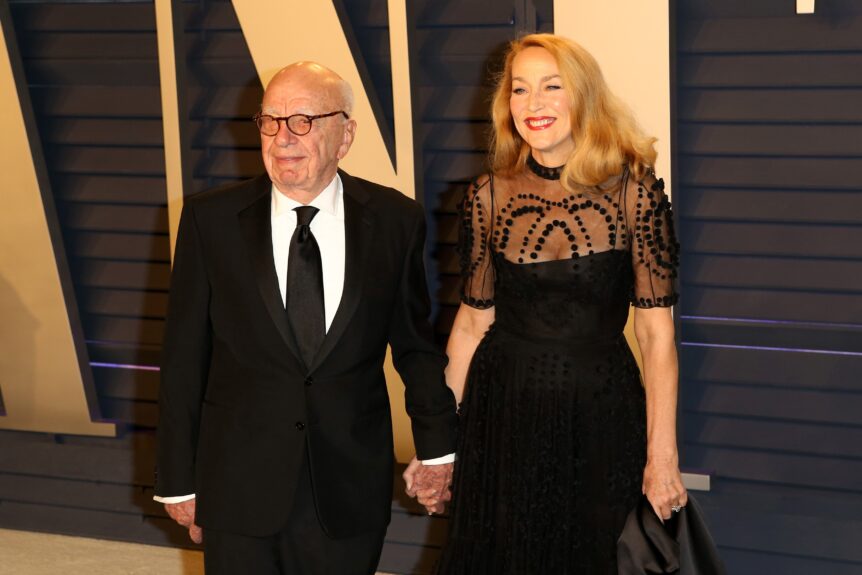Billionaire media mogul Rupert Murdoch established the Murdoch Family Trust in 1999, as a condition of his divorce from his second wife, Anna Murdoch Mann. The Trust ensures that the family’s 28.5% stake in News Corporation- which is valued at approximately $6 billion and includes Fox News, The Wall Street Journal and the New York Post- be passed down equally to the couple’s four children.
But lately, the 93-year-old Murdoch and his heirs- who many have observed to be the real-life inspirations for the hit series “Succession“- have engaged in a bitter contested trial in a small Nevada probate court, as Murdoch seeks to amend the irrevocable trust and pass control of his fiefdom to his son Lachlan, who closely shares his father’s political views. The problem? In many states, including New York, irrevocable trusts can only be amended with the permission of the court, or upon the consent of all affected parties.
The county probate commissioner has ruled that the media mogul could request changes to the trust only “if he is able to show he is acting in good faith and for the sole benefit of his heirs.“ The elder Murdoch argues that the move would preserve and enhance the empire’s overall value, since the chosen heir would likely maintain its rightward tilt, while the other adult children (James, Elisabeth, and Prudence) might not do so.
Further complicating matters is that Murdoch has fathered two additional children since the Family Trust was created in 1999. As matters currently stand, those children would receive no control over their father’s vast empire.
The Rupert Murdoch family dispute highlights common issues in estate planning:
Irrevocable Trusts are Not Easily Amended: Before creating an irrevocable trust, ensure it aligns with your long-term goals. Oftentimes, changes can only be made through court proceedings, such as reformation, rescission, or decanting, which can be complex, costly, and challenged.
Consider Family Dynamics: Blended families require extra attention to asset disposition. Think about future children and whether to create a closed or open beneficiary class.
Unpredictable Beneficiary Actions: No matter how well-written the estate plan, beneficiaries may not follow the settlor’s intentions. Consider their values and potential conflicts. Here, for instance, Mr. Murdoch created a conservative media empire. Now, three of the four children to whom he planned to leave the empire reportedly do not agree with Mr. Murdoch’s politics. Parents cannot necessarily guarantee that their children will use their legacies for their intended purpose or in line with their values.
Mental Capacity and Undue Influence: It is unclear from reports whether the children who are against the changes have raised questions about Murdoch’s mental fitness to change his estate plan, or Lachlan’s influence over his father, but these are also considerations, given Rupert’s age. When irrevocable trusts are altered, it’s typically pushed for by beneficiaries as opposed to trust grantors like Rupert Murdoch. It is not generally the person who created the trust that would ever try to alter it, because they have more or less given away their rights.
The Murdoch case highlights the importance of careful drafting, regular review, and open communication among family members. Consulting experienced trust counsel is crucial when dealing with complex estate planning issues.
Disclaimer:
The information on this website is not legal advice. It is for information purposes only. No user of this site should act or refrain on the basis of this information without seeking legal counsel. This website does not create an attorney-client relationship.
Photocredit: Shutterstock Photo ID: 1328530106

